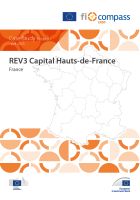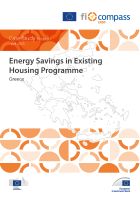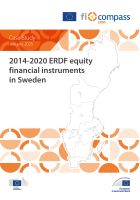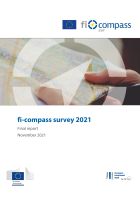The European Regional Development Fund / Cohesion Fund
Supporting cohesion in the European Union
The European Regional Development Fund (ERDF) aims to strengthen economic, social and territorial cohesion in the European Union by correcting imbalances between its regions. In the 2021-2027 programming period, it enables investments in a smarter, greener, more connected and more social Europe that is closer to its citizens. It is complemented by the Cohesion Fund (CF) which supports investment in 15 Member States in transport, the environment, energy efficiency and renewable energy.
The new ERDF/CF Regulation (Regulation EU 2021/1058) entered into force on 1 July 2021.
In the 2021-2027 period, cohesion policy will support, through its investments, the following five policy objectives (POs):
- PO1: a Smarter Europe, through innovation, digitisation, economic transformation and support to small and medium-sized businesses.
- PO2: a Greener, carbon free Europe, implementing the Paris Agreement and investing in energy transition, renewables and the fight against climate change.
- PO3: a more Connected Europe, with strategic transport and digital networks.
- PO4: a more Social Europe, delivering on the European Pillar of Social Rights and supporting quality employment, education, skills, social inclusion and equal access to healthcare.
- PO5: a Europe closer to citizens, by supporting locally-led development strategies and sustainable urban development across the EU.
The majority of the investment will target the first two POs and will also continue to promote job creation in small and medium enterprises, provide support to the health sector, improve preparedness related to unexpected emergencies, and fully develop the economic potential of tourism and culture sectors.
With the inclusion of an additional EUR 47.5 billion from the Next Generation EU fund, the EU has allocated more than EUR 370 billion to its economic, social and territorial cohesion policies for the 2021-2027 period. With the enhanced flexibility for use of financial instruments under the new Common Provisions Regulation (Regulation EU 2021/1060), including in combination with grants, it is expected that Member States will increasingly use guarantee, loan and equity investments for the implementation of their Operational Programmes.
The package of Cohesion Policy legislation also includes the new regulation on the Just Transition Fund (Regulation EU 2021/1056) which is part of the European Green Deal and the first pillar of the Just Transition Mechanism (JTM). It aims to alleviate the social and economic costs resulting from the transition towards a climate-neutral economy, through a wide range of activities directed mainly at diversifying the economic activity and helping people adapt in a changing labour market.
For further information, please visit the ERDF webpage, the CF webpage, and the financial instruments in Cohesion Policy webpage on the European Commission's website.
Recent videos

Visibility and Communication for financial instruments under EU shared management funds
This fi-compass thematic webinar, held on 11 February 2025, explored the visibility and communication requirements for financial instruments under EU shared management funds. Experts from the European Commission (DG REGIO & INFORM EU network), the EIB, and managing authorities discussed legal obligations, common challenges, audit implications, and best practices. The session also featured case studies showcasing effective communication strategies for financial instruments supporting SMEs and energy efficiency projects.
Watch the recording to learn how to enhance visibility, boost demand, and ensure compliance with EU regulations.
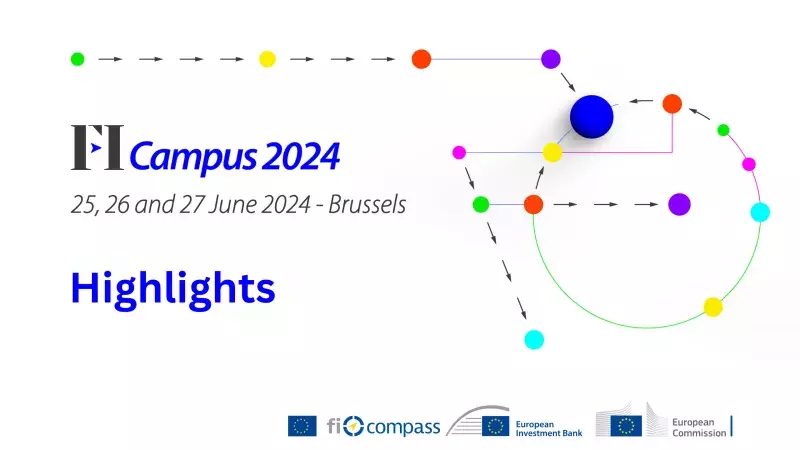
FI Campus 2024 – Carrying the torch for financial instruments
Check out the standout moments from FI Campus 2024, an event dedicated to financial instruments in the EU. Watch key segments from the conference, including a fireside chat with Commissioner Elisa Ferreira and European Investment Bank President Nadia Calviño. Enjoy exclusive interview snippets and get a sneak peek at our Showcase Award 2024 winners. Don't miss these essential highlights!

Audit of financial instruments in the 2021-2027 programming period
Watch the full recording of the webinar 'Audit of Financial Instruments in the 2021-2027 Programming Period', jointly organised by the EC (DG REGIO) and the EIB. Held on Thursday, 21 March 2024, this online event focused on the updated audit methodology, system audits, audit and control of financial instruments design and setup, verification of expenditure for eligible purposes, payments, and sampling techniques.





